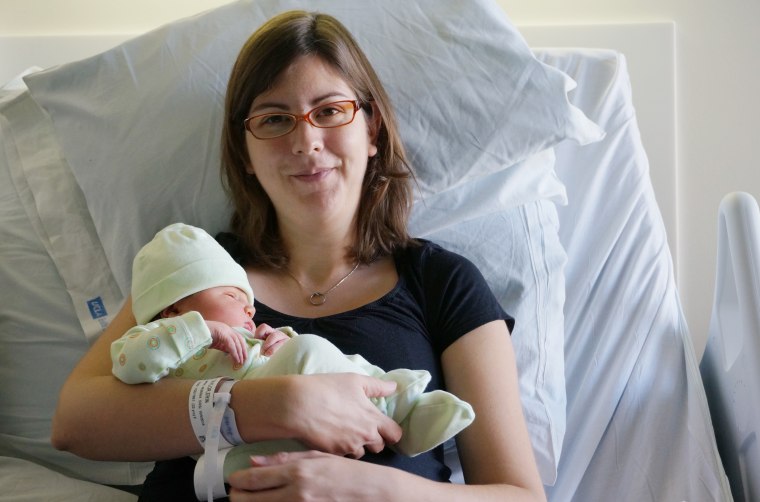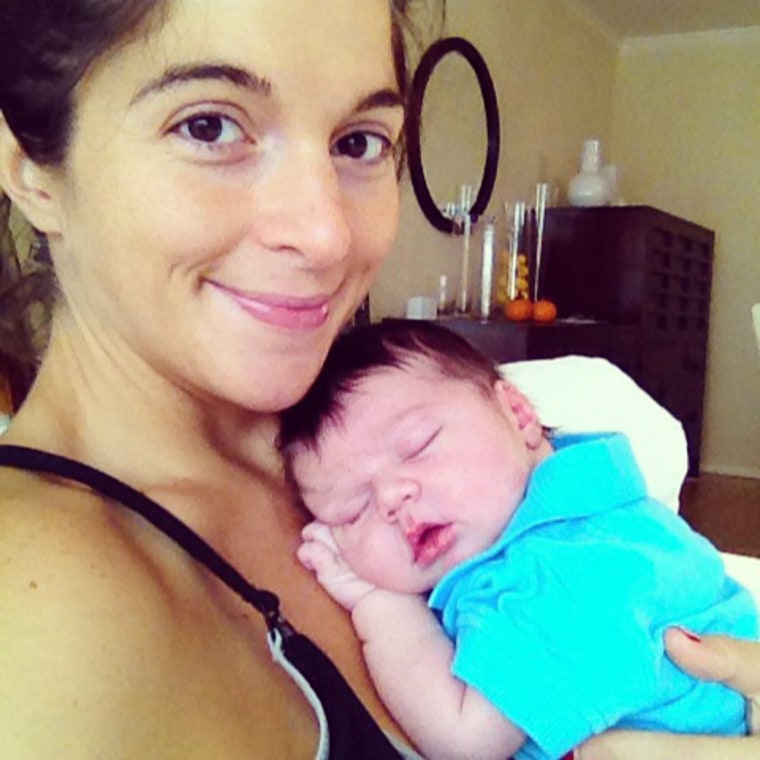MANHATTAN BEACH, Calif. — Their stories are identical in almost every way. Layla Parast and Erin Taylor had the same insurance from the same employer and gave birth at the same hospital.
"It was the first pregnancy for both of us," Parast said. "And it was really fun to have someone to go through that with."
Parast and Taylor both worked at the Santa Monica headquarters of the Rand Corporation, a policy research company. Both women have doctorates and analyze health care issues. Taylor specializes in health insurance.
While they were pregnant with their first kids in 2014, they used their knowledge to shop around together for the right doctors and hospitals.
"The main concern," Taylor said, "actually was finding the hospital that was in our insurance network because we both had the same insurance through our company."
Click here to see KUSA's award-winning series on surprise medical bills
Despite their expertise and their extensive research, however, one of the women could not steer clear of a persistent glitch in the American health insurance system — the surprise medical bill. Forty percent of Americans say they have received an unexpected and unwelcome bill for health care they thought was covered by their insurance.
Both Parast and Taylor settled on the same hospital, UCLA Medical Center in Santa Monica, and waited for their delivery dates. Parast went into labor first and had a "pretty textbook" delivery.
"When the pain started to get pretty unbearable, they asked me if I wanted an epidural and I said yes, so the anesthesiologist came, gave me an epidural," Parast said. "A few hours later, my son arrived."
A couple weeks later, Taylor went into labor. Like Parast, she got an epidural at the hospital, but her delivery took much longer.

"It was a particularly painful process in the end," Taylor said, "but [my son] was perfectly healthy, and everything turned out just fine."
Both women expected their insurance company would be covering the vast majority of the cost of their deliveries. A few weeks later, Parast received a bill from the anesthesiologist for $1,600.
"I remember telling my husband, 'This seems really strange. Why would I get this big bill?'" Parast said. "I didn't want to get reminders and have it go to collections if I tried to figure out what was going on, so I just paid it and thought, 'I'll figure this out later.'"
Parast said she warned Taylor to watch out for a similar medical bill in the mail, something Taylor said she was surprised to hear.
"Here's an in-network hospital. Why in the world would we expect an anesthesiologist bill for the epidural?" Taylor said. "Both of us actually had the epidural put in, in the middle of the night and who's going to stop and think to ask the particular doctor or anesthesiologist that came into the room, you know, 'Excuse me, are you on my insurance before you do this to me because I don't want to get a big bill in the mail?'"
Taylor said she never got that bill in the mail, even though she went to the same hospital and had the same insurance. Her anesthesiologist was covered. Parast decided to investigate and called the insurance company. She said the woman on the phone told her she chose an out-of-network provider when she was in the hospital.
"I explained, 'I didn't choose anything,'" Parast said. "'I was in labor, and this is for getting the epidural.'"
She said the woman on the phone kept repeating the same line over and over — that she chose an out-of-network provider.
For Parast, it took several calls to her insurance company and plenty of frustration but she eventually got her money back, something that doesn't always happen.
What happened to Parast, which was first detailed on the website Health Affairs, can happen more often than patients think even if they plan for it. A recent poll by Kaiser Family Foundation found that four in 10 Americans have received a surprise medical bill.

Several health policy experts agreed that all parties share the blame in the system: the doctors, insurance companies and hospitals. Doctors can charge much higher prices for out-of-network care if they don't accept insurance. Insurance companies might negotiate service rates that are not competitive enough for doctors and hospitals to conduct their business. That could lead doctors to charge patients those out-of-network rates.
In California, where Parast and Taylor were treated, the state Legislature passed a law in 2016 protecting consumers from surprise medical bills when they go to in-network facilities. It also ensures patients only have to pay their in-network cost sharing amount. That means they only pay the share of costs covered by insurance that patients pay out of pocket.
However, that's not the case in all 50 states. Some states have protections like California's but there's no federal fix just yet. Three bills with bipartisan support are currently circulating in Congress, all aiming to put an end to surprise medical billing through different approaches.
Until federal legislation is passed, patients are left to stick up for themselves and be their own health care advocates. Health policy experts say the best thing a patient can do before receiving care — whether for a planned procedure or in an emergency if possible — is call the insurance company and make sure that the hospital and the doctor are both in-network. If a patient receives a surprise medical bill, he or she should call the insurance company or the doctor or hospital involved to figure it out.
In Parast's case, UCLA Medical Center, where she was treated, said at the time it had private anesthesiologists on staff who may not have participated in the hospital's insurance plans, which meant they could bill patients separately.
Parast's anesthesiologist, Dr. Ronald Wahlig, said his usual practice was to inform patients if he did not take their insurance but that wasn't always possible since childbirth can be unpredictable.
"I also routinely advised patients to contact my office if they had any concerns about their bill, and I frequently extended discounts to patients who were unaware of my out-of-network status," Wahlig said.
According to Wahlig, his records indicate Parast did not contact his office for help and that it was a "rare exception" when his practice was not able to address a patient with an out-of-network billing issue.
"I had no idea that out-of-network providers could be in an in-network hospital," Parast said. "I thought if you chose an in-network hospital, everyone in the hospital's in network."
UCLA Medical Center said in a statement that when patients contacted the hospital with billing issues, it worked to address them. "Since then, UCLA Health has discontinued the practice of allowing private anesthesiologists at our hospitals." UCLA changed its practice when California changed its law.
If not for her friend and the similar nature of their deliveries, Parast said she wouldn't have known what to do.
"If there had been any kind of difference in, you know, a different hospital, or a different insurance, or anything, I would have maybe thought it was that," she said, "but everything was the same."
Taylor said, "That's a failure in the system to protect consumers and help them understand what they're facing or what they might potentially face."
